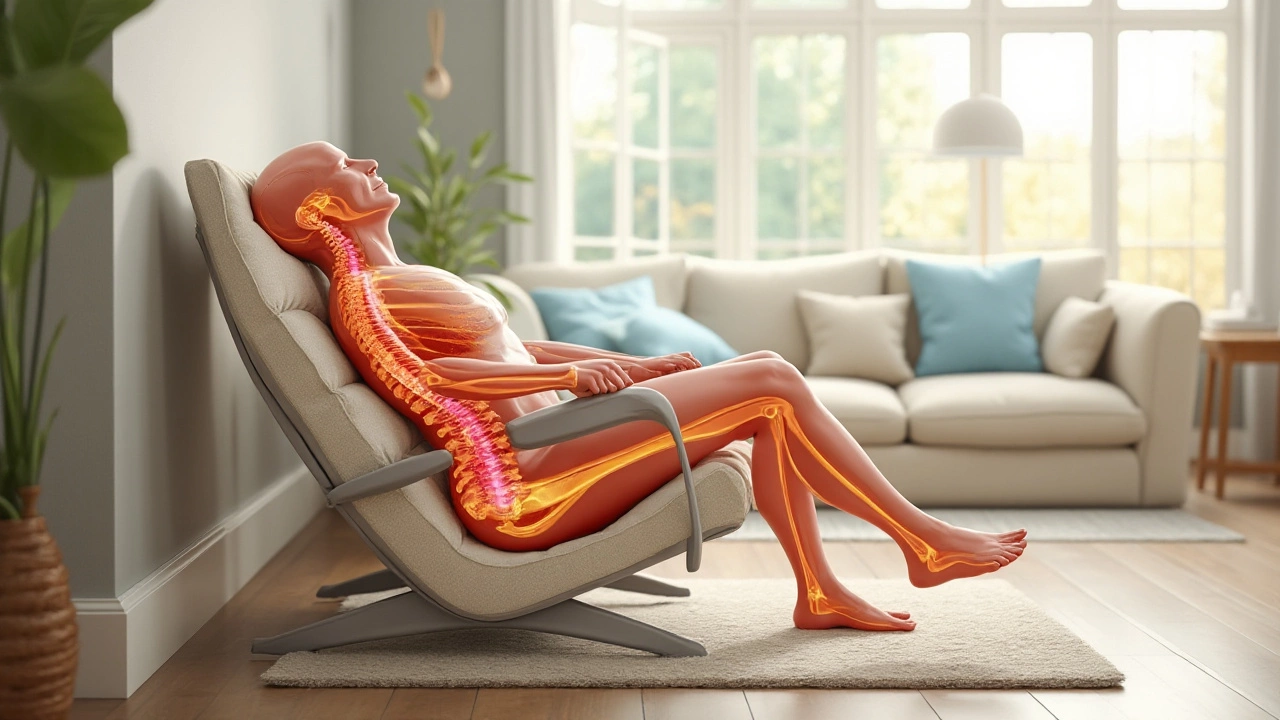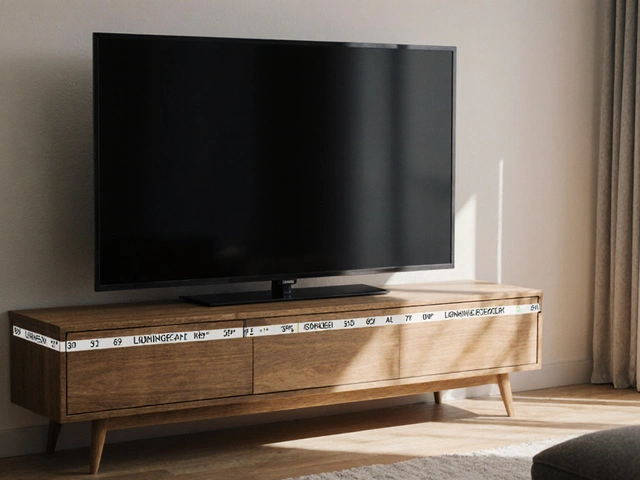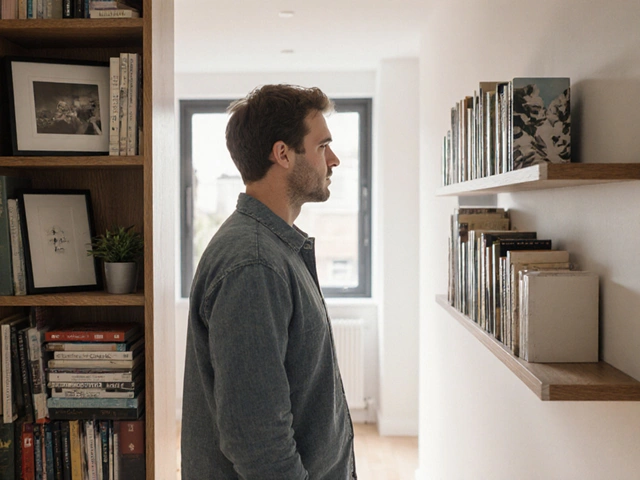In the quest for a good night's sleep, many people have tried unconventional methods, including sleeping in recliners. You may have stumbled upon the same idea, wondering if those plush, comforting chairs could offer more than casual relaxation. Before making this a nightly habit, it's essential to weigh the benefits and drawbacks.
While recliners can offer unique support and comfort, they also raise questions about long-term health impacts. From issues of posture to sleep quality, diving into the nuances of sleeping in a recliner is crucial for understanding its full effect on your body. This article will guide you through the maze of opinions and expert advice to determine if a recliner should be your new sleep haven.
- Understanding Recliners and Sleep
- Health Benefits of Sleeping in a Recliner
- Potential Drawbacks and Concerns
- Tips for Optimal Recliner Sleeping
- Making the Right Choice for Your Health
Understanding Recliners and Sleep
For starters, it's essential to grasp why recliners have become a popular choice for those seeking alternative sleep solutions. A recliner, at its core, is a compact piece of furniture designed for comfort and support, allowing users to adjust their position by reclining back. The beauty of recliners is that they aren't just seats; they offer positions that can help relieve tension and improve circulation by elevating the feet above heart level. This is particularly beneficial for those dealing with medical conditions like sleep apnea or acid reflux, where an elevated sleeping posture can alleviate symptoms and promote better sleep.
The connection between sleeping in a recliner and improved health is strongly linked to posture. Recliners are designed to contour to the body's natural curve, which can help in reducing back pain. Unlike flat beds, recliners offer customizable angles, which aid in distributing body weight more evenly. This kind of support isn't just a comfort feature; it's backed by ergonomic science. By maintaining a slightly upright position, recliners can reduce pressure on the spine, which is critical for anyone suffering from back issues.
"The right recliner can mimic the zero-gravity position championed by NASA, which reduces strain on the body's pressure points," mentions Dr. Leonard Higgins, a specialist in ergonomic furniture design.
Delving deeper, the sleep cycles in a recliner can differ significantly compared to a traditional bed. This difference in cycles is due, in part, to the recliner’s inclination angle, which can promote quicker entry into REM sleep for some individuals. Many recliners also feature adjustable features such as lumbar support and massage functions, which can further enhance comfort and relaxation. These additional features play a significant role in setting the stage for both mental and physical rest.
Yet, this transition isn't without challenges. Adapting to a recliner-based sleep routine might require an adjustment period. The key here is not just the recliner, but how one uses it. Experimenting with different reclining angles and ensuring the chair fits one's body dimensions are critical first steps. Choosing a recliner with appropriate dimensions is vital; if it’s too large or too small, it might negate the potential benefits. And here's where statistics come into play—in a study conducted by the Furniture Ergonomics Research, nearly 70% of participants reported an improvement in sleep quality when switching to a recliner, attributed mainly to the personalized support and comfort.
When considering making a switch, it is wise to examine personal needs and health conditions. Speaking with a healthcare provider can help determine if a recliner is suitable for your situation. It’s not just about comfort but aligning the choice with what supports your health conditions the best. In summary, understanding recliners and sleep is a nuanced dialogue between furniture technology and personal health needs—a dialogue worth exploring to ensure richer, more restful slumbers.
Health Benefits of Sleeping in a Recliner
Seeking comfort in a recliner when it's time to sleep might seem unconventional; however, it has its share of surprising health benefits. One significant advantage is the relief it can provide for those suffering from chronic back pain. Recliners allow you to elevate your legs and slightly tilt your torso, which can alleviate pressure on the spine. This position helps to reduce strain, creates better alignment, and can also improve circulation, ultimately providing a more comfortable rest for individuals with back issues. A recliner's unique angle often results in less tossing and turning, helping one find restful sleep that might not occur on a traditional flatbed.
People struggling with sleep apnea or snoring can also find solace in sleeping in a recliner. By keeping the head elevated, recliners can open up the airways more effectively than lying flat, reducing the chances of airway obstruction. This can lead to a significant fluctuation in the severity and frequency of both snoring and sleep apnea episodes. As Dr. Richard Jamison, a renowned pulmonary and sleep disorder expert, says,
"Elevating the upper body is a simple yet remarkably effective method against sleep-disordered breathing, particularly if sleeping horizontally worsens symptoms."This strategic positioning can promote smoother breathing patterns, ultimately contributing to a healthier sleep cycle.
For those who experience swelling in the legs or feet, such as individuals with edema, sleeping in a recliner can serve as a gentle remedy. Elevated legs can assist in reducing the swelling and discomfort associated with fluid retention. By repositioning the body overnight, a recliner also encourages better fluid dispersion, which is much harder to achieve on a flat surface. Further, for pregnant women, a recliner often becomes a nap-time nest, as it helps in alleviating pressure from certain stress points, nurturing a mother-to-be with a restful break from the usual strains.
Another notable health benefit lies in the psychological aspect of comfort and safety that a recliner offers. The cradle-like seating can produce an immediate calming effect, akin to being swaddled. This can be exceptionally beneficial for individuals dealing with anxiety, insomnia, or even post-surgical recovery. Settling into a recliner may create a feeling of cocooning that softens the edge of agitated nerves, enabling deeper and more restorative sleep. By engaging with a dedicated relaxation space, users may associate their recliner with rest and comfort, setting the stage for consistent, positive experiences over time.
However, it should be noted that not all recliners are created equal. Modern designs offer advanced features like full lumbar support, heat, and massage functions, turning the humble chair into a spa-like sleep retreat. Investing in a high-quality recliner can amplify these health benefits, creating a customized environment that can adapt to the user's specific needs. These enhancements not only improve physical comfort but also improve the overall sleep experience, making prolonged hours of rest in various positions possible, something traditional sleeping arrangements might lack.

Potential Drawbacks and Concerns
While the idea of sinking into a cozy recliner every night might sound tempting, it’s worth examining some of the potential pitfalls that might arise from making this a routine. One of the primary concerns revolves around spinal health. Recliners can sometimes fail in providing the necessary support to maintain a healthy spine alignment throughout the night. Unlike a proper mattress, which distributes weight evenly and supports the natural curve of the spine, a recliner may encourage slumping, which can lead to discomfort or even chronic back issues over time.
Another point of consideration is the issue of blood circulation. When sleeping for extended periods in a recliner, the legs are often positioned lower than the heart. This position can affect how effectively blood is circulated throughout the body. Over time, inadequate circulation may lead to swelling, discomfort, or even waking up with tingling sensations due to restricted blood flow. Ensuring the chair allows for legs to occasionally be elevated might mitigate these effects, but it's still a significant consideration.
There’s also the question of sleep quality itself. While recliners can be incredibly comfortable for a short power nap, the quality of sleep achieved when resting in such a position overnight might not meet the same standards as a traditional bed. People might find themselves waking up more frequently due to discomfort or needing to adjust their position. This restless sleep could lead to daytime fatigue, diminished cognitive function, and a decrease in overall health and wellness. A
study from the National Sleep Foundationsuggests that consistent, deep sleep is crucial for both physical and mental health, highlighting the potential risks of compromising on quality rest.
Moreover, those with specific health conditions should consult a healthcare provider before adopting a reclined sleeping position. People with sleep apnea, for instance, might find that elevating the head helps alleviate symptoms, yet a recliner doesn’t always support this in a controlled manner like adjustable beds do. It may actually exacerbate sinus issues or obstruct airflow if not positioned correctly. For this reason, understanding the body's specific needs is vital when considering converting a recliner into a permanent bed.
Lastly, consider the long-term implications for joint health. A recliner often keeps the knees slightly bent, which might feel comfortable initially but could pose issues if muscles and joints are not allowed to extend fully during sleep. Over months and years, consistent bending could potentially contribute to knee and hip issues, particularly in comparison to the full extension allowed by sleeping flat on a mattress. Balancing comfort with the body’s natural alignment needs ensures that everyone can wake up refreshed and ready for the day.
Tips for Optimal Recliner Sleeping
When it comes to sleeping in a recliner, ensuring a comfortable and healthy environment is of utmost importance. The first step is to select the right recliner that suits your body type and specific needs. Look for chairs with proper lumbar support, as this will help maintain the natural curve of your spine, reducing the risk of back pain. Adjustable features, like headrest and footrest positions, can be particularly beneficial in distributing your body weight evenly, adding to your comfort.
Once you have the right recliner, setting it up for optimal sleeping involves a bit of personal customization. Consider using a supportive pillow to keep your neck relaxed and to help avoid stiffness or soreness. Extra cushioning, like a soft throw or a blanket, can offer added comfort and maintain your body temperature during the night. Keeping the room dimly lit or cool can also contribute greatly to improved sleep quality, as light and temperature are known to affect your sleep cycle significantly.
Hydration is key, so it's advisable to keep a glass of water nearby. However, try to limit your intake before bed to avoid disrupting your sleep with nighttime bathroom trips. It's also a good idea to ease into your recliner sleeping routine gradually. Start with short naps to see how your body responds before making it a nightly habit. "Though recliners can be perfect for individuals experiencing specific health conditions, it's critical to listen to your body's signals to ensure no adverse effects arise," notes Dr. Jackson Monroe, a respected chiropractor.
Paying attention to your posture even after you settle in is important to avoid discomfort. If you wake up during the night with unwanted aches, consider repositioning or readjusting. Regular maintenance and cleaning of your recliner ensure longevity and a fresh sleeping surface. Check for loose screws or mechanisms and tighten as needed to maintain safety integrity. A checklist can be handy, including weekly routine tasks like vacuuming any collected dust or debris.
Recliner sleeping tips can range from choosing the right eye mask to keep distractions at bay, to using essential oils like lavender, known for their relaxing properties. Using a diffuser might improve the ambiance and potentially enhance the quality of your rest. Technology offers sleep-tracking tools. Installing apps or wearing a smartwatch could help monitor sleep patterns, giving insight into sleep quantity and quality over time.
Introduce healthy sleep habits by maintaining a regular bedtime, even when you're sleeping in a recliner. Going to bed and waking up at the same time daily regulates your biological clock, ensuring that your body receives ample rest. There's value in establishing a pre-sleep routine, which settles your mind and prepares you physically for bedtime. Techniques like meditation or deep-breathing exercises can unwind your mind and ease tension.

Making the Right Choice for Your Health
When pondering whether sleeping in a recliner every night is a wise choice for your health, there are several key considerations. It's essential to start by acknowledging the unique design of a recliner chair. These chairs are intended to offer support to your back, neck, and legs, which can be particularly helpful for individuals suffering from certain medical conditions. For instance, those with chronic lumbar issues might discover a recliner contouring to their spinal needs, thereby reducing pain.
Yet, it's crucial to consider the longevity of using a recliner as a sleeping alternative. Over the long term, concerns such as joint stiffness and muscle tension may arise if the recliner does not offer adequate support in its resting position. Health experts often recommend evaluating the chair's comfort ergonomically before committing to long-term use. A visit to a healthcare provider may provide personalized insight into whether sleeping in a recliner daily is suitable for your particular needs.
A study published in the Journal of Physiotherapy emphasizes, "Appropriate positioning during sleep significantly reduces the risk of musculoskeletal problems, underscoring the importance of personalized sleeping environments."
Evaluating Your Personal Needs
Before deciding, it's important to evaluate your personal health needs. Do you have problems with acid reflux? Many people find that sleeping slightly upright in a recliner can mitigate these symptoms, providing you with a more restful night. On the other hand, if sleep apnea is an issue, certain recliner positions could either alleviate or exacerbate the condition, depending on the angle. In such cases, a consultation with a sleep specialist could provide the clarity needed to make an informed choice.
Additionally, the material and build quality of the recliner chair play a significant role. Recliners made from memory foam or with lumbar support adjustments can offer differentiated comfort levels. Pay attention to the strength of the frame and the durability of the upholstery as well. These factors contribute significantly to the overall experience, and should not be overlooked when considering a recliner as a permanent bed alternative.
Considerations for Long-Term Use
When it comes to enduring your preference for sleeping in a recliner, a few lifestyle adaptations might be necessary. Regular movements, such as stretching or light exercises, can maintain muscle flexibility, countering stiffness from extended periods of reclining. A balanced diet rich in vitamins that promote bone health is also advisable. The potential benefits of recliner sleeping for back or joint health should always be balanced against possible cardiovascular or musculoskeletal downsides. A clinician could offer detailed advice on integrating these health-conscious habits into your life.
For those concerned about the financial impact, it's worth considering the cost-to-benefit ratio of a high-quality recliner compared to traditional beds. While a recliner may initially be less expensive, consistent use might lead to wear and tear sooner than anticipated. Investing in an ergonomically designed recliner could thus serve dual purposes, providing comfort while also saving on future medical expenses resulting from poor sleeping posture.
In making the decision, a blend of personalized health assessment, ergonomic analysis, and well-being prioritization should guide your choice. Whether you decide that a recliner is the right sleeping arrangement depends ultimately on these factors and the extent of your due diligence when selecting the ideal chair.



